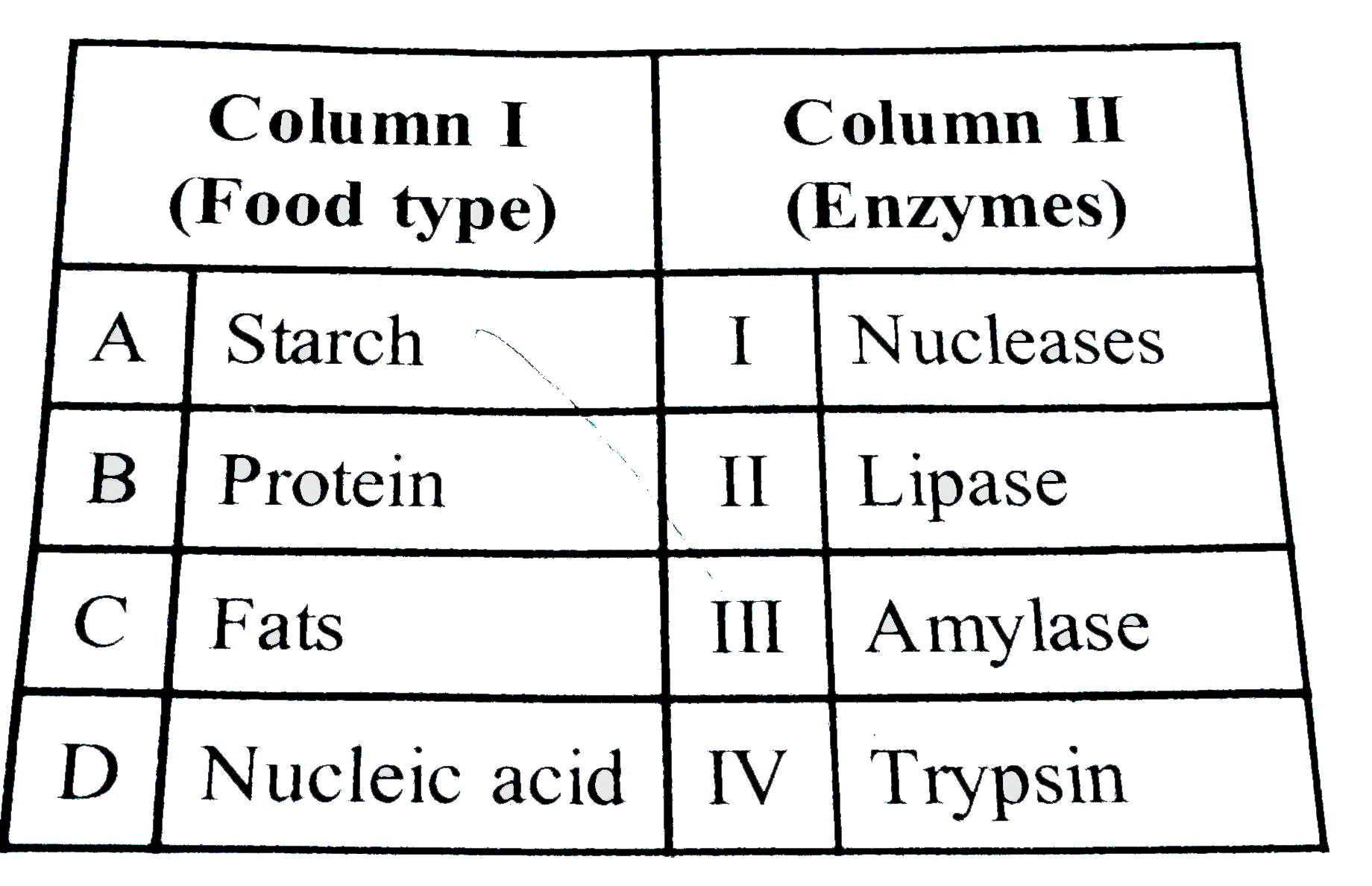Deoxyribonucleoside triphosphate serve dual purposes. The purposes are
I. acting as substrate
II. acting as enzymes
III. provide energy for polymerisation
IV. Increase the rate of reaction.
Choose the correct option.
I and II
II and III
III and IV
I and III
The correct Answer is:D
To solve the question regarding the dual purposes of deoxyribonucleoside triphosphate (dNTP), we will analyze each of the given options step by step.
Step 1: Understanding the Role of dNTP
Deoxyribonucleoside triphosphate (dNTP) is a building block of DNA. It is composed of a deoxyribose sugar, a nitrogenous base, and three phosphate groups.
Step 2: Analyzing Each Purpose
1. Acting as substrate:
- dNTP serves as a substrate in DNA synthesis. It provides the necessary components for the formation of DNA strands.
- Conclusion: This statement is correct.
2. Acting as enzymes:
- dNTP does not function as an enzyme. Enzymes are typically proteins that catalyze biochemical reactions. dNTP is not an enzyme itself; instead, it is utilized by enzymes like DNA polymerase during DNA replication.
- Conclusion: This statement is incorrect.
3. Provide energy for polymerization:
- The triphosphate groups in dNTP release energy when they are cleaved during the polymerization process, which is essential for forming the phosphodiester bonds in DNA.
- Conclusion: This statement is correct.
4. Increase the rate of reaction:
- While dNTPs are involved in the reaction, they do not act as catalysts to increase the rate of the reaction. This role is fulfilled by enzymes like DNA polymerase.
- Conclusion: This statement is incorrect.
Step 3: Selecting the Correct Options
Based on the analysis:
- Correct statements: I (acting as substrate) and III (provide energy for polymerization).
- Incorrect statements: II (acting as enzymes) and IV (increase the rate of reaction).
Final Answer
The correct option is: I and III.
---
Deoxyribonucleoside triphosphate (dNTP) is a building block of DNA. It is composed of a deoxyribose sugar, a nitrogenous base, and three phosphate groups.
1. Acting as substrate:
- dNTP serves as a substrate in DNA synthesis. It provides the necessary components for the formation of DNA strands.
- Conclusion: This statement is correct.
- dNTP does not function as an enzyme. Enzymes are typically proteins that catalyze biochemical reactions. dNTP is not an enzyme itself; instead, it is utilized by enzymes like DNA polymerase during DNA replication.
- Conclusion: This statement is incorrect.
- The triphosphate groups in dNTP release energy when they are cleaved during the polymerization process, which is essential for forming the phosphodiester bonds in DNA.
- Conclusion: This statement is correct.
- While dNTPs are involved in the reaction, they do not act as catalysts to increase the rate of the reaction. This role is fulfilled by enzymes like DNA polymerase.
- Conclusion: This statement is incorrect.
Based on the analysis:
- Correct statements: I (acting as substrate) and III (provide energy for polymerization).
- Incorrect statements: II (acting as enzymes) and IV (increase the rate of reaction).
The correct option is: I and III.
Similar Questions
Knowledge Check
- Question 1 - Select One
Which of the following acts substrate as well as provide energy for DNA polymerisation
ARibonucleosideBDeoxyribonucleosideCRibonucleotideDDeoxyribonucleoside triphosphate - Question 2 - Select One
In the given reaction
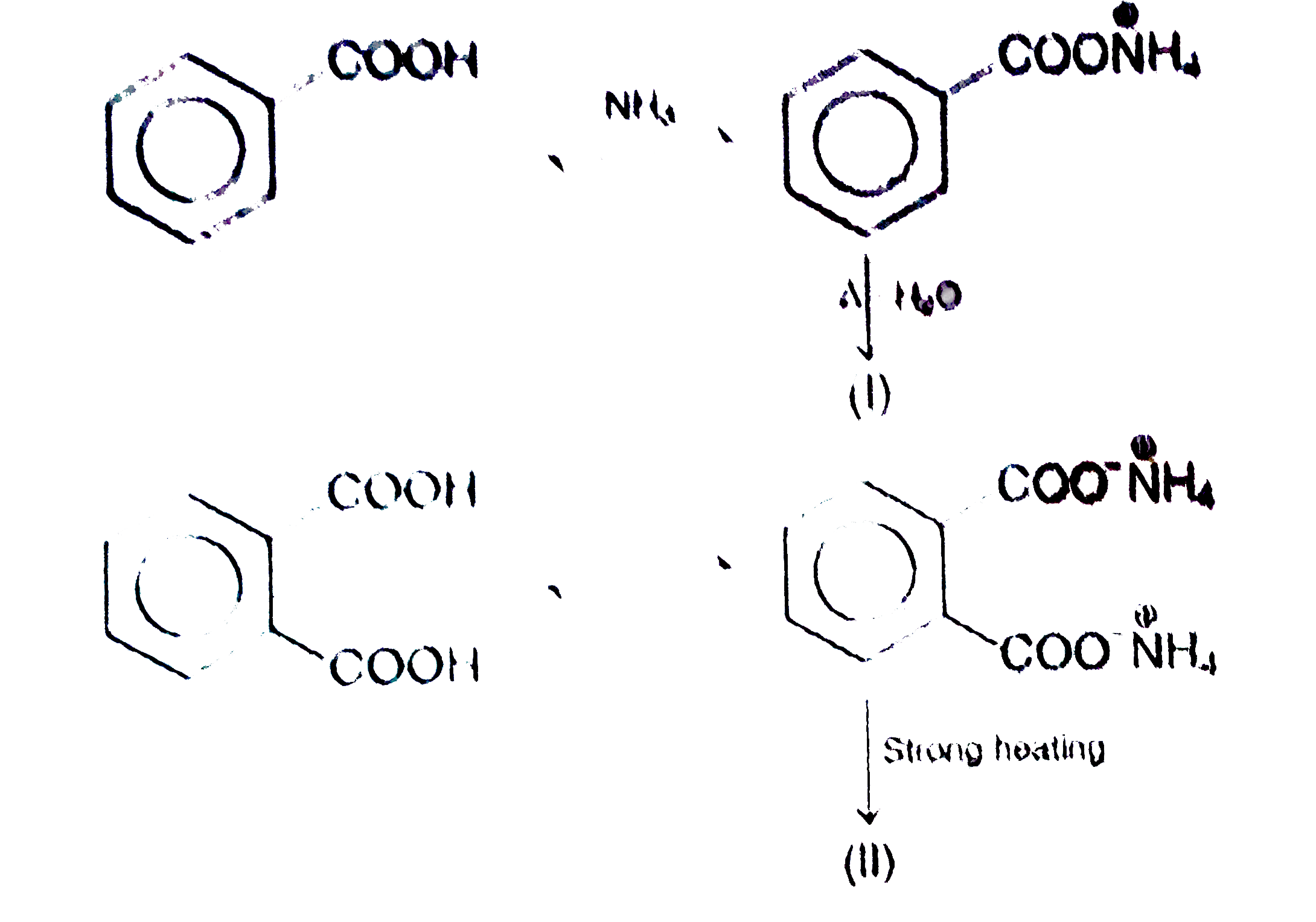
Identify I and II for the above reaction and choose the correct option.A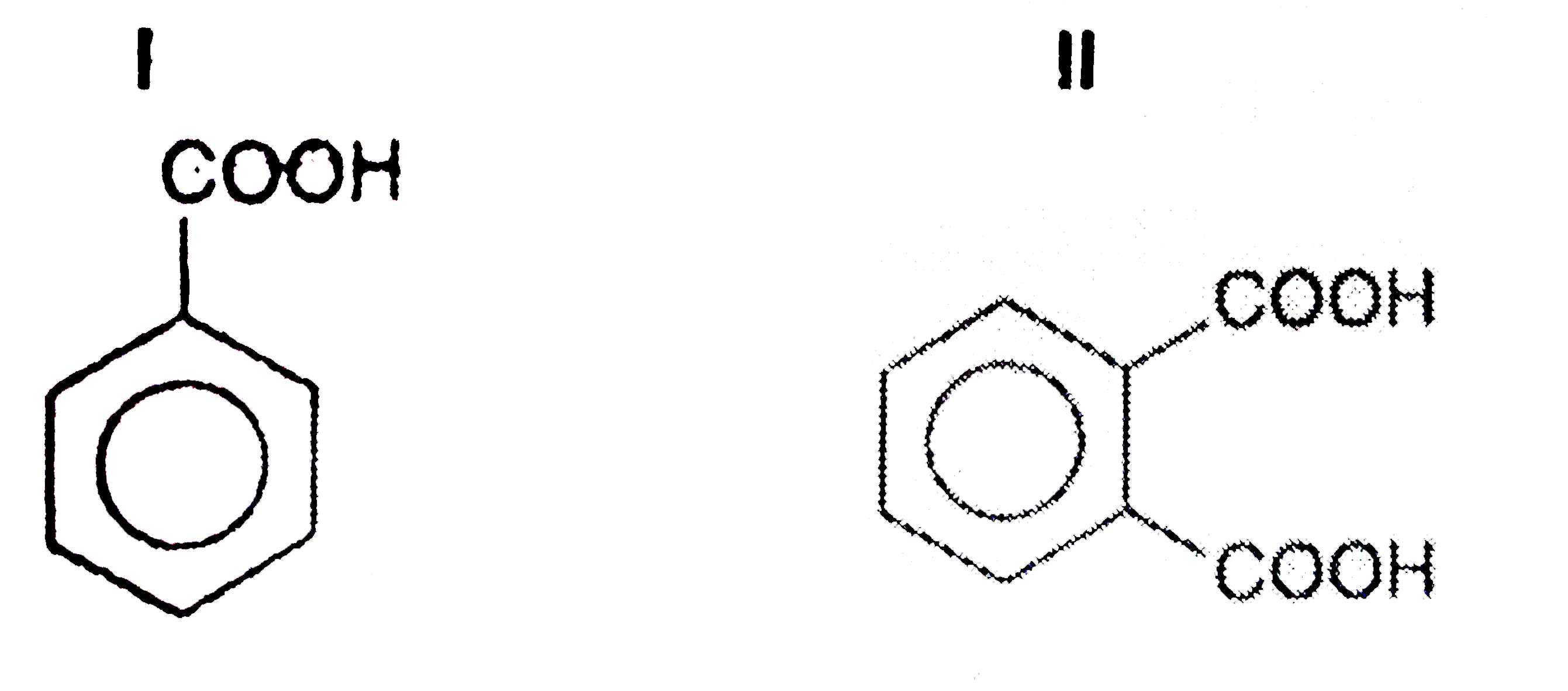 B
B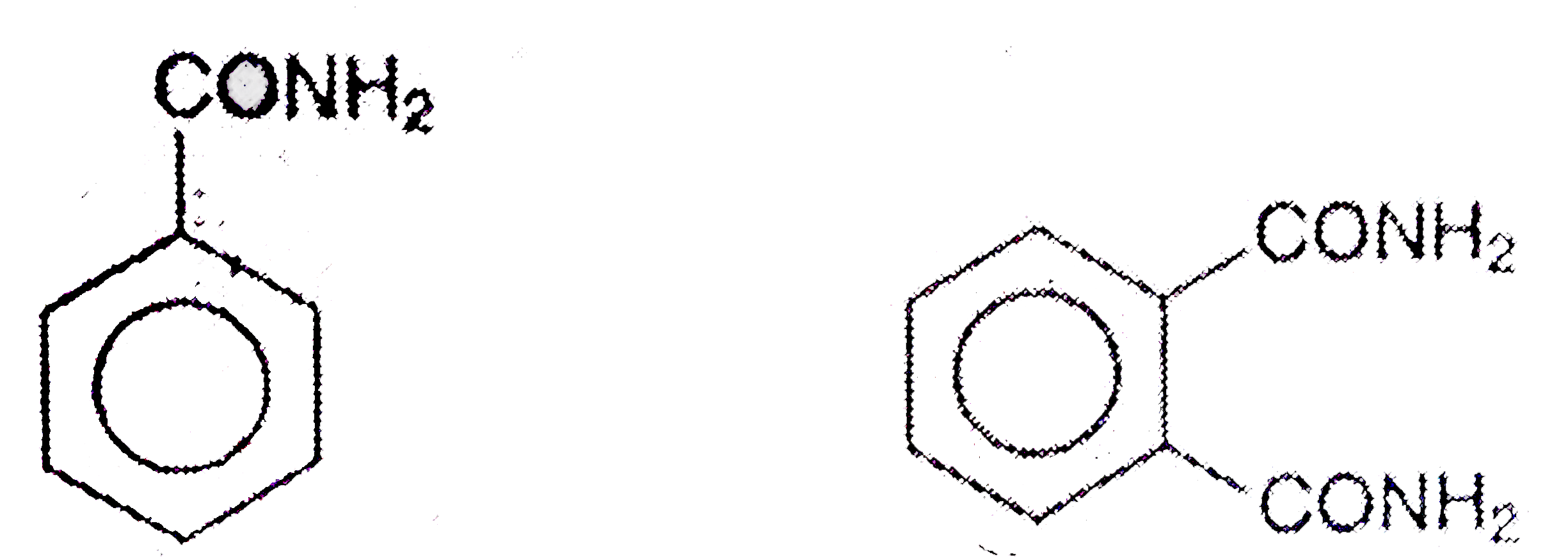 C
C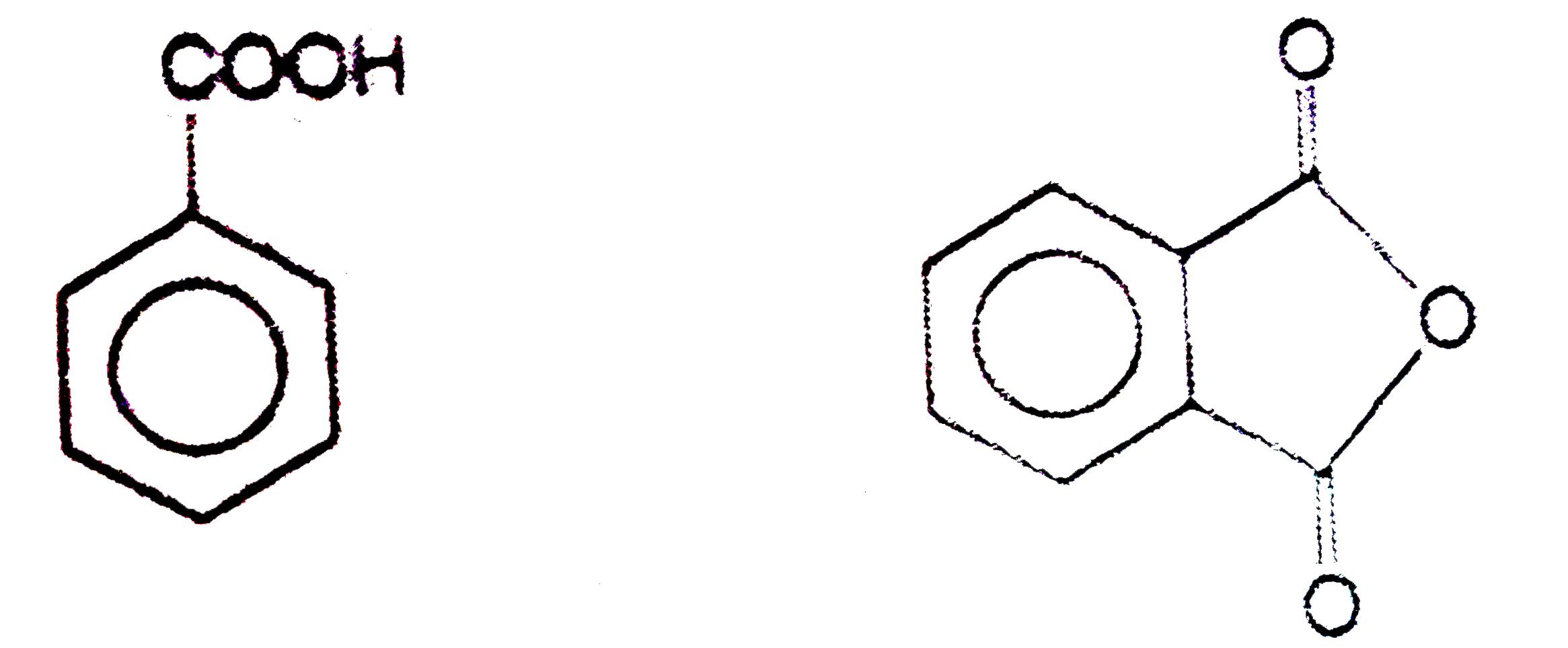 D
D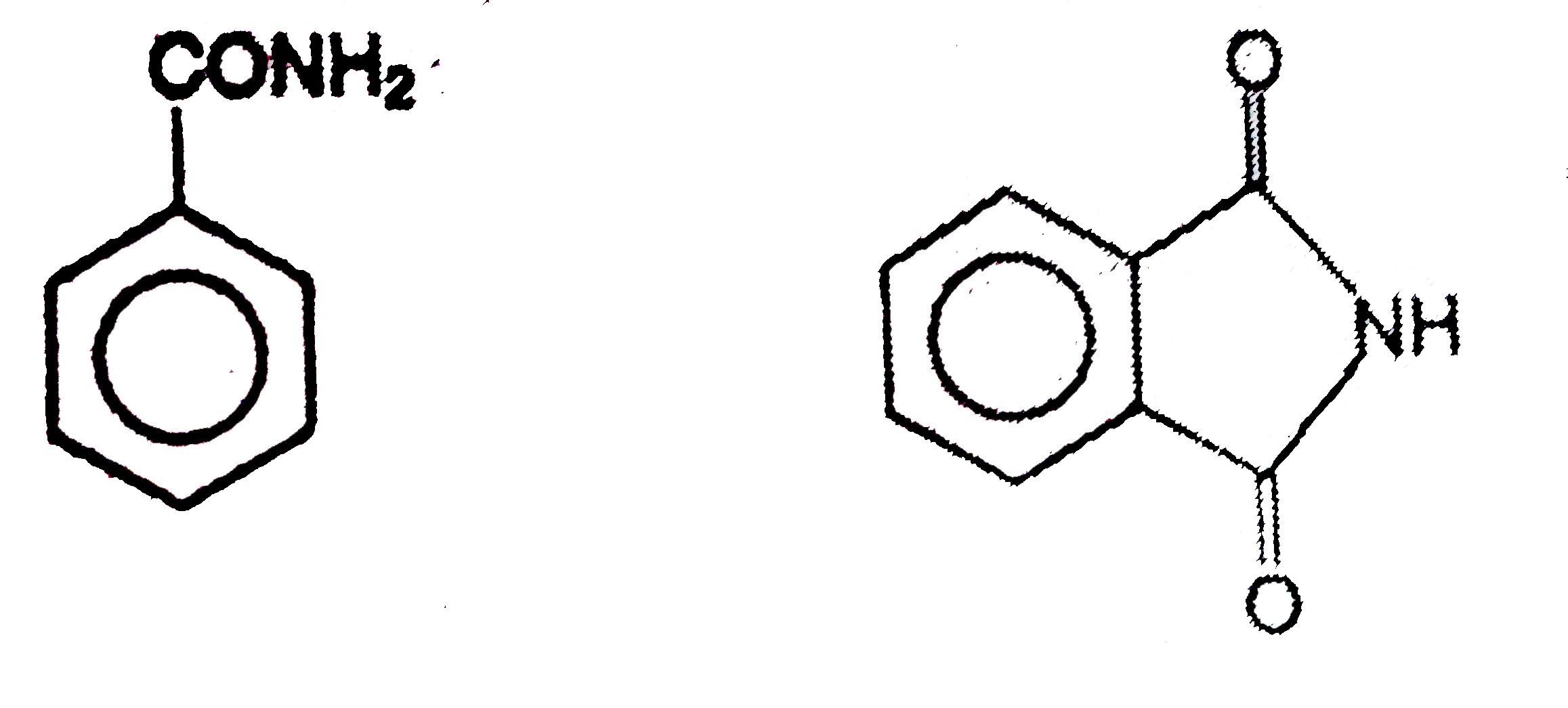
- Question 3 - Select One
Match the columns I, II and III. Choose the correct option.
 A1-a-I,2-c-ii,3-b-iii,4-e-v,5-d-ivB1-d-I,2-e-ii,3-b-iii,4-c-v,5-d-ivC1-b-I,2-c-ii,c-e-iii,4-a-v,5-d-ivD1-d-v,2-a-iv,3-e-I,5-d-iii
A1-a-I,2-c-ii,3-b-iii,4-e-v,5-d-ivB1-d-I,2-e-ii,3-b-iii,4-c-v,5-d-ivC1-b-I,2-c-ii,c-e-iii,4-a-v,5-d-ivD1-d-v,2-a-iv,3-e-I,5-d-iii
Assertion : Deoxyribonucleoside triphosphate act as substrates and also provides energy for polymerisation.
Reason : Deoxyribonucleoside triphosphate act as substrates and also provides energy for polymerisation.View SolutionMatch the enzyme in column I with its function in column II and choose the correct option.
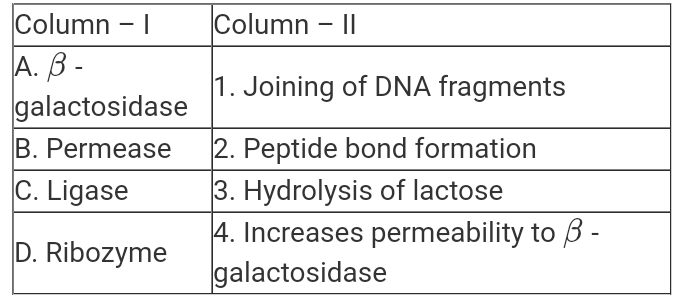 View Solution
View SolutionAbscisic acid
I. induces dormancy
II. Induce cell elongation
III. Provides defence against salt and cold stresses
IV. Inhibits abscission
Choose the correct option.View SolutionTeredo is
I.commonly known as shipworm
II.destructive to wood in seawater
III.a living fossil
IV.commonly called as sea mouse
Choose the correct option .View SolutionMendelism was rediscovered by
I. Morgan
II. De Vries
III. Correns
IV. Tschermak
Choose the correct optionView Solution


